Women of Color Speak Out Against the Whitewashing of Reproductive Justice

Recently, the New York Times published a feature about the racial and generational divide in the reproductive health and justice movements. The article focused on the ways in which Black and Brown women and non-binary people are excluded from prevailing narratives around the fight to protect Roe, while ignoring the very urgent and intersecting issues that affect their lives. I was one of the women interviewed and, after the piece was published, I found that much of the backlash was defensive; many people painted me and the young women of color interviewed as out of touch with the feminist movement, instead of embracing the opportunity in intersectional approaches.
Ultimately, the backlash proved my point: Reproductive rights spaces tend to be echo chambers that fail to adequately center those who are directly impacted by these issues. There’s more anger at young women of color speaking honestly about a movement that doesn’t include us than there is advocacy on behalf of the Black women dying due to pregnancy complications (#JusticeForSha-Asia), or migrant women being detained and separated from their children, or forced sterilizations impacting Indigenous women. These are all reproductive justice issues, and they reflect the urgent concerns facing communities of color.
I was disappointed that many organizations I along with the other activists named as exemplars of intersectional reproductive work were excluded. Organizations like SisterSong, Ancient Song, and the National Latina Institute for Reproductive Justice were all left out of the final piece. As a result, the article highlighted the problems that exist without also amplifying the work that's already being done to correct those problems. Editing processes like these are part of the challenges Black women and WOC face.
In response, I gathered nine Black, Indigenous, and Latinx women who are on the frontlines of intersectional reproductive justice work—whether as practitioners, advocates, patients, or a combination—to share their stories. I see you, I honor you, I fight with you.
I can’t separate my reproductive justice work from the violence we are enduring.
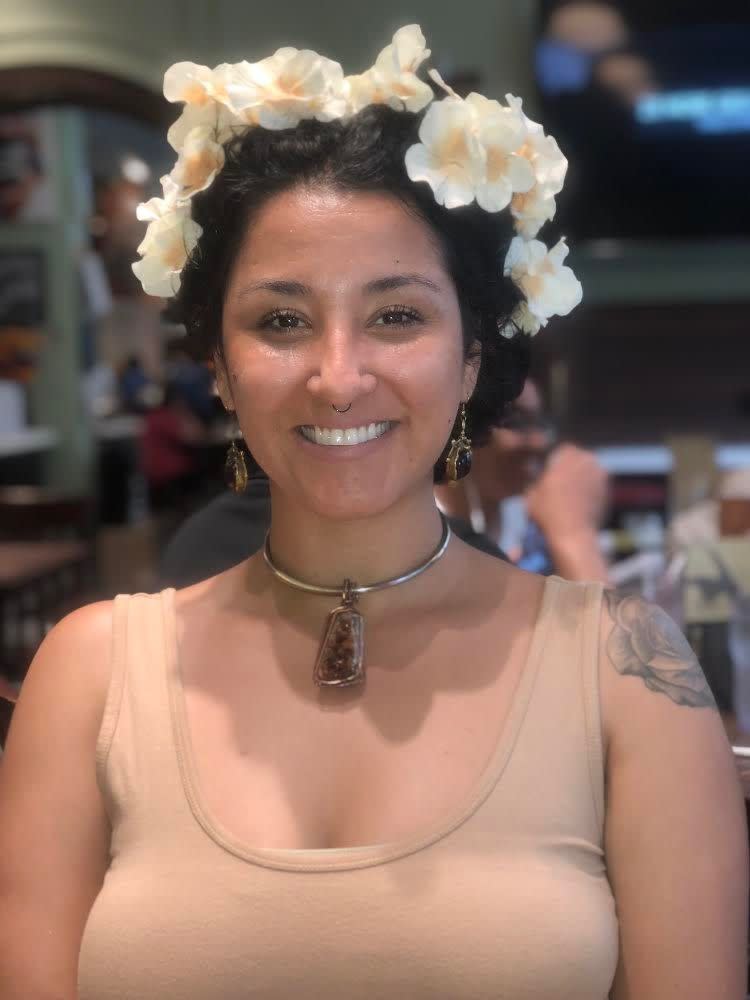
“I currently reside in the Phoenix area, which is on O’odham and Yaqui lands, and I share my abortion story and incarceration experience as a form of resistance to the idea that I, as a brown immigrant and non-citizen woman, should not have autonomy over my own life, body, reproduction, or sexuality. I can’t separate my reproductive justice work from the violence we are enduring because a threat to Black bodies is a threat to me. Reproductive justice is about creating a thriving world where people are supported whether they want to parent or not. If our neighbors and loved ones are being caged up and violently murdered, that is not justice. The same systems denying undocumented people basic, full-spectrum healthcare are the same systems placing barriers on all womxn and people’s right to choose an abortion. The same systems of supremacy caging immigrant families and forcing Black girls in juvenile detention centers in the U.S are the same systems reproductive justice organizers like myself are fighting against at the Supreme Court. I’m currently organizing to #FreeThemAll from the mass incarceration monster, whose cornerstone is now immigration, while fighting my own deportation for my right to remain with my loved ones. That is as important and crucial as the work we are doing to #defundthepolice and fully fund abortion clinics or access. No one is free until all policing and attacks on our bodies are abolished.” —Alejandra Pablos, reproductive justice organizer and storyteller
Intersectionality is not just a term—it is the lived experiences of those whose lives are often defined by others.

“I entered reproductive justice work after the birth of my first child. It was a transformative experience. I took a doula training and saw the ways Black and Brown bodies are criminalized at birth. Ancient Song manifested out of a need to center Black and Brown pregnant people and their parenting experiences. Our approach is simple: Meet people where they are, not where we expect them to be, by offering full-spectrum doula services. We understand that Intersectionality is not just a term—it is the lived experiences of those whose lives are often defined by others. Reproductive justice is the catalyst that propels the full spectrum of our intersectional beings to get you to understand the whole, not just the parts. It is the birthing and rebirthing of humanity in real time that reflects an image of hope in the lives of those who live and breathe that change every day.” —Chanel Porchia, activist and founder of Ancient Song
If this is new information to you, then reproductive advocacy spaces are also failing.
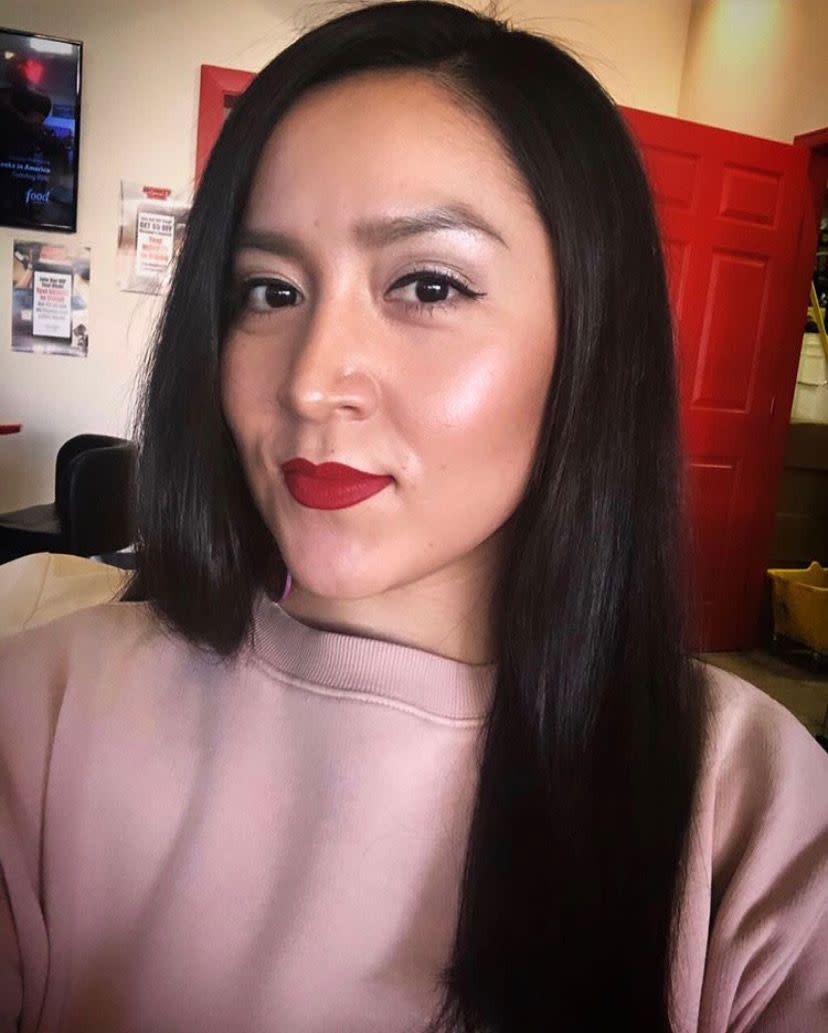
“As is the case with every conversation and fight for racial and socioeconomic justice, Indigenous communities can be better served by being included and fighting against the continued invisibility of Native Americans, which contributes specifically to the decades-long reproductive injustices committed against Indigenous women. History—like the fact that in the 1970s, Native American women were sterilized by the federally-run Indian Health Service—should be acknowledged and also inform the ongoing reproductive oppression in tribal communities. To this day, reproductive health decisions in Indian Country are regulated by the federal government through IHS, the healthcare facilities on reservations that most Native American women depend upon because private health insurance isn’t affordable. Historically, IHS has been extremely slow to offer access to important healthcare needs, like rape kits and contraceptives, and access to abortion is even more foreign. Indigenous women are more than 2.5 times more likely to be raped or sexually assaulted than other women in the U.S., and IHS policies indicate that access to abortion, if offered at all, is limited to instances of rape, incest, or when a mother's life is threatened. In addition to the devastating impact of COVID-19 on reservations like the Navajo Nation, these reproductive health challenges for Indigenous women are exposing the poor healthcare infrastructure and access in Indigenous communities. This points to the federal government’s failure to meet yet another treaty obligation to tribal nations, which was the assurance of quality healthcare for all tribal citizens. These reproductive health disparities and injustices are appalling, and if this is new information to you, then reproductive advocacy spaces are also failing to be inclusive and intersectional in a time that demands racial equity and justice.” —Allie Young, Diné woman, storyteller, and entertainment activist
Showing up for folks historically left out of conversations around reproductive health and justice is anti-racist work.
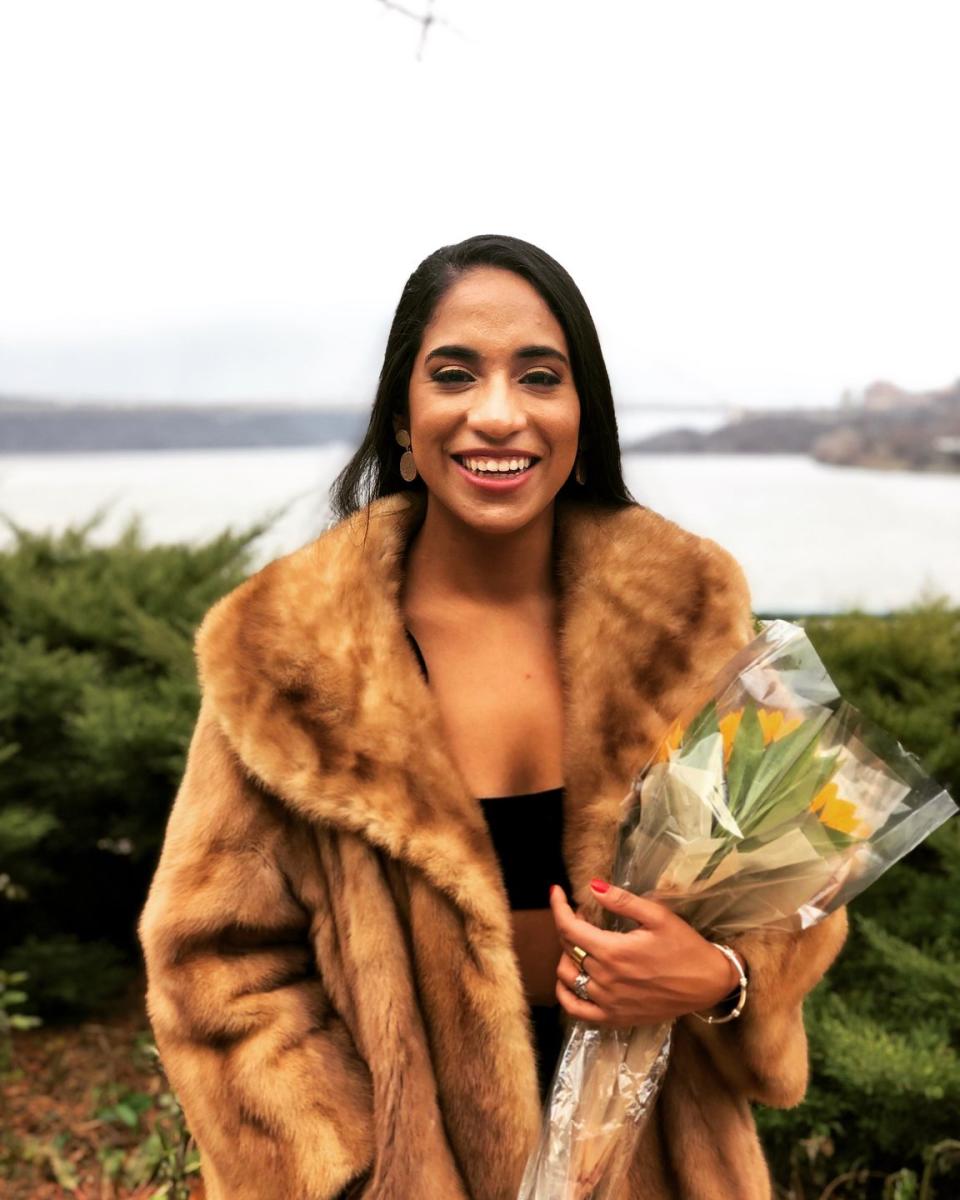
“Right now is a moment of reckoning for the movement as a whole, and the reproductive justice movement is no exception. Throughout my own abortion process, I was privileged to receive good medical services, but not good care. The metal detectors, the transactional nature of the waiting rooms, and the disregard for privacy in the recovery room were all symbolic reminders that abortions, while legal, are still widely stigmatized and inaccessible, making the experience feel like a backdoor, secretive one. Even my woke/feminist/public health/'your body, your choice' best friend and partner at the time did not know how to say the right things or support me—it's not something we learn about in grad school or in our groups chats or even something that is portrayed in media (aside from white-washed narratives like Juno). Care is a verb—an active action that must be practiced continuously in this process, from healthcare providers, partners, family, and friends. Better care can come from an improved clinical experience and environment, and caring for each other must happen in all areas of the movement: within our relationships, within the clinics, within leadership of reproductive justice organizations, and within equitable stakeholder engagement that centers the voices of Black and trans folks and amplifies the work of organizations like SisterSong, abortion funds, and other community organizations. Showing up for folks historically left out of conversations around reproductive health and justice is anti-racist work. Ultimately, if the reproductive justice movement never moves past the debate over the morality and legality of abortion and other white-washed narratives in reproductive health, then we can never critically think about the ways reproductive health experiences can be improved for people to receive high-quality care or the ways that the reproductive justice movement can center and elevate the voices and experiences of people with marginalized identities.” —Ana Lucia Carmelo, healthcare consultant
These questions stayed with me as I sought to understand Black women’s health in America and across the Diaspora.

“When I was 15, my high school sent me and other girls to a sexual health fair to teach us about sexual health resources. What stayed with me was the demographic of the room—it was mainly Black girls. Where was everyone else and what exactly was this fair going to do when people didn’t have access to health insurance or spaces in which they could talk about sexuality and sexual health freely? These questions stayed with me as I sought to understand Black women’s health in America and across the Diaspora. My exploration led me to a workshop where I learned about reproductive justice and the key differences between reproductive health, rights, and justice. With this new knowledge, I used my love of history and knowledge of intersectionality to understand how Black women sought to control their own reproduction and how racism, imperialism, and other systems of oppression have shaped access to this care. As people reflect on the role of youth of color in this movement, I look to organizations like URGE, which engages with young folks and mobilizes them to become advocates. I think mentorship, listening to young folks and their needs, and political education can help usher even more young people into this movement that gave me a home.” —Seyram Dodor, policy assistant at the International Center for Research on Women
Young BIPOC are the heartbeat of our movement, and we need to be diligent about creating sustainable entry points for them.

“As a first generation Nicaraguan Salvadoran woman, my ancestral lineage shows how resilient women have been in healing from unspoken traumas as they reclaim their reproductive autonomy. I entered this work because of the injustices I witnessed with pregnant women who experienced incarceration and substance use disorders. I wanted to be a part of the solution by being a birth worker. The reproductive justice movement is the most holistic movement space I have ever been a part of. The reproductive justice framework allows for me to advocate for accessible abortions and protest against racist police brutality that is inflicted on communities of color. This movement is not a single-issue problem. Reproductive justice means that communities, like East Oakland, should be able to thrive when there is accessibility to nourishing food, affordable housing, clean water, and the ability to live freely from state violence. This work can be intersectional when we are intentional about centering and uplifting the lived experience of BIPOC—and especially people with disabilities and/or those impacted by detention and incarceration—in this work. I have gratitude for the Black women who created this movement. I‘m constantly learning from them. Young BIPOC are the heartbeat of our movement, and we need to be diligent about creating sustainable entry points for them.” —Cynthia Gutierrez, reproductive justice activist and birth worker
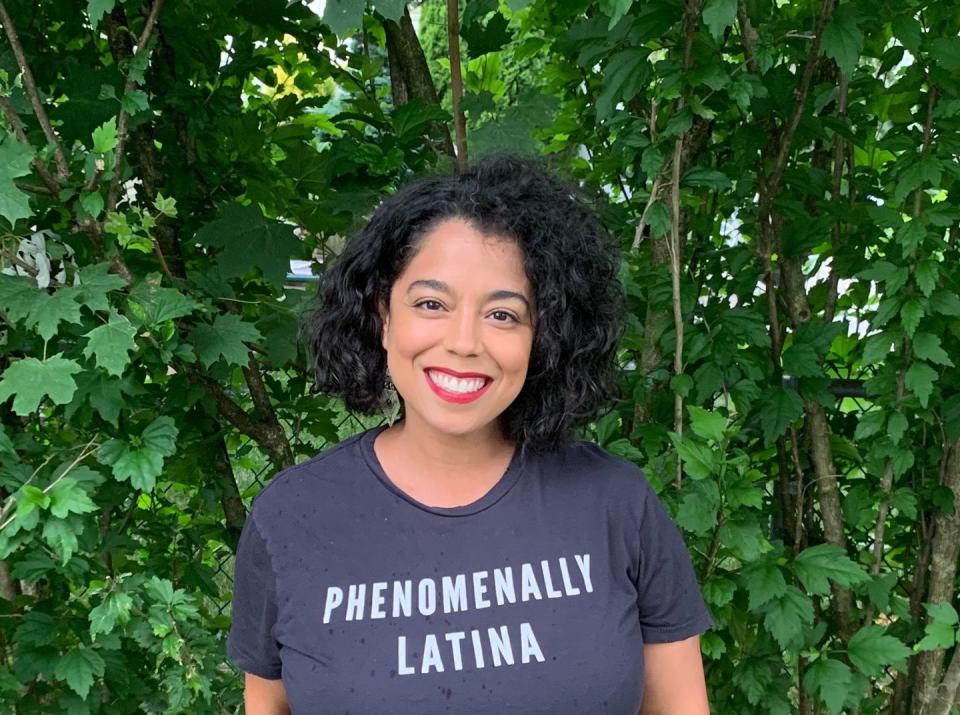
It is about empowering my community to make the best decisions for themselves and their families.
“Growing up, my mom, a strong-willed Latina, taught me about the importance of bodily autonomy, that no one but me should have the right to make decisions about my body. I knew that Latinas/xs and our communities often get left behind, and after making the decision to become a parent, it became clear to me that fighting for an inclusive, just society was where I belonged. Fate stepped in, and I joined National Latina Institute for Reproductive Justice, where I learned that reproductive justice is a movement; a framework that centers women of color, transgender, and non-binary people of color; a way to look at the world through our eyes and lift up our voices. As a queer woman of color, I have to center intersectionality. It is a part of my everyday life. It is about empowering my community–Black and brown women–to make the best decisions for themselves and their families. I am so grateful to the Black women who gave birth to the reproductive justice movement. They have grounded us in a new way to see ourselves, our value, and how we should fight for what is rightfully ours. At the Latina Institute, we use a multi-generational approach to inform and empower our communities. We are reaching out to young Latinas/xs through trainings that reframe our history using a reproductive justice lens so that any conversation about reproductive rights and reproductive health always centers women of color. But we are also engaging their tías, mamas, and abuelas, so that together we can dismantle the stigma around abortion and reproductive healthcare in our households and support our youth in the fight for salud, dignidad, y justicia.” —Juana Lopez, manager of the executive office at Latina Institute
Truth is, had I not met with a Black nurse that day, things may have gone very differently.
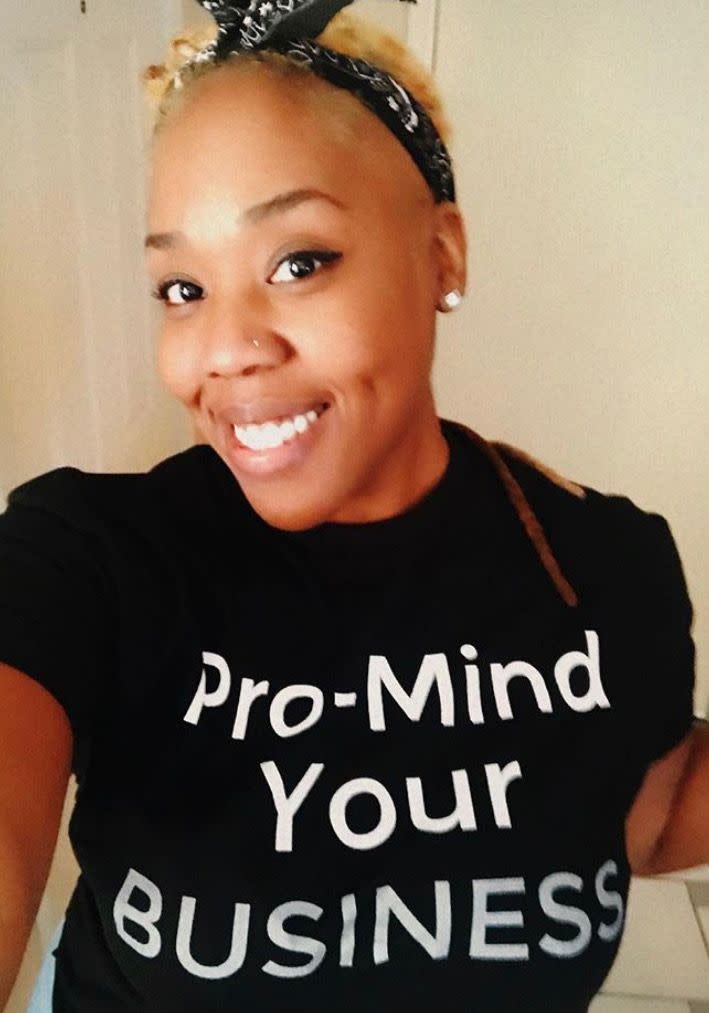
“In 2015, I had an ectopic pregnancy that resulted in the removal of my right fallopian tube. I was so moved by the compassionate care I received after having gone to the clinic, for what I thought was going to be an abortion, that I wanted to work there. Shortly after, I was hired as an abortion counselor. This was the clinic that saved my life and provided all of my abortions and where I worked for the doctor who delivered my daughter. It was there that I realized how important it is for people who look like me to see us working in spaces such as these. We need people who have lived experiences and are relatable to feel safe and affirmed. The abortion experiences of a Black woman/person will be very different from those of a white woman/person. Truth is, had I not met with a Black nurse that day at the clinic when I found out I was threatening to rupture my right fallopian tube, things may have gone very differently. That experience changed the course of my life and from that I was able to be there for Black people seeking abortions just the same.” —Kenya Martin, communications program coordinator at National Network of Abortion Funds
Reproductive justice allows us to center the whole person and to recognize that there are other elements that absolutely come into play, like race and class.

“My professional work in reproductive justice began in 2017, and during that transition, I became a storyteller with We Testify, an organization dedicated to the leadership of people who have abortions. As a storyteller, I learned to tell my own abortion story from an atypical point-of-view. My story does not involve a financial or logistical barrier like the many people in this country that seek to have an abortion day-to-day, but it did intersect with other issues greatly impacting many marginalized communities. I tell my story as a first-generation, Black woman who was struggling with a mental illness and a substance abuse issue because having an abortion allowed me the opportunity to get the treatment needed to save my life. Reproductive justice allows us to center the whole person and to recognize that there are other elements that absolutely come into play, like race and class. The autonomy to have/not have children is one aspect this movement supports but dismantling systems that threaten our children and families with anti-Black violence is another. Reproductive justice is a movement that all should be called toward during this very moment in time if we are seeking to liberate our families from the holds of white supremacy.” —Sally Alves, We Testify storyteller
You Might Also Like

